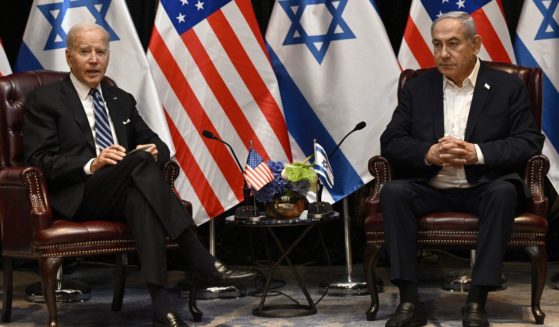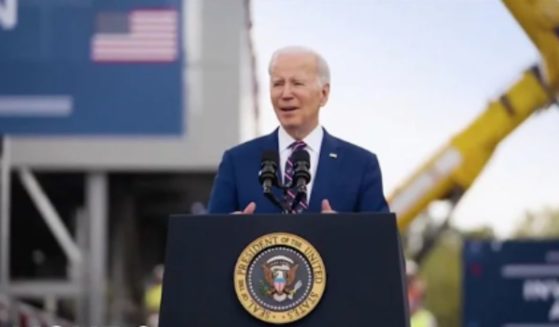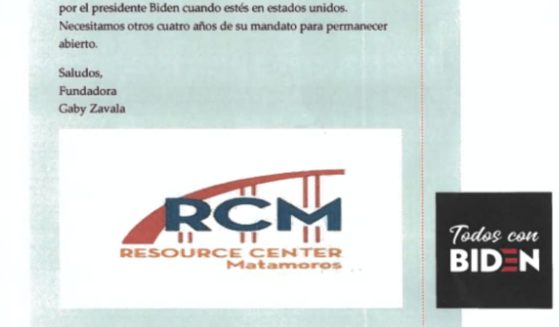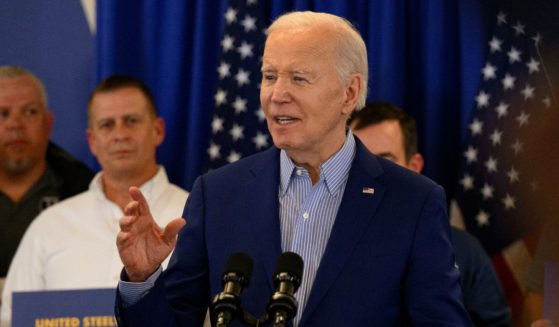Trump Immigration Policies Lead to Thousands of Mexican Migrants Giving Up on Asylum Claims: DHS
An assessment of a Trump administration policy aimed at reducing the numbers of illegal immigrants entering the United States has shown that President Donald Trump’s “Remain in Mexico” policy is working.
The Migrant Protection Protocols policy sends migrants seeking asylum back to Mexico during immigration proceedings instead of allowing them to be released into the U.S. while awaiting court hearings, according to Fox News.
The policy was put in place because only a small percentage of migrants ever returned for court hearings on their immigration status. Most simply melted into the general population.
To implement the policy, hearings have taken place in border towns such as Laredo, Texas, and involved a videoconference between illegal immigrants in Mexico and an immigration judge in the U.S.
The Department of Homeland Security review of the policy noted that “At peak of the crisis in May 2019, there were more than 4,800 aliens crossing the border daily—representing an average of more than three apprehensions per minute.”
But since the new policy, identified by the initials MPP throughout the document, things have been very different.
“DHS has returned more than 55,000 aliens to Mexico under MPP. MPP has been an indispensable tool in addressing the ongoing crisis at the southern border and restoring integrity to the immigration system,” the assessment noted.
The report notes that there is a connection between the end of what was commonly called “catch and release” and the new policy.
“DHS has observed a connection between MPP implementation and decreasing enforcement actions at the border—including a rapid and substantial decline in apprehensions in those areas where the most amenable aliens have been processed and returned to Mexico pursuant to MPP,” the assessment said.
“Since a recent peak of more than 144,000 in May 2019, total enforcement actions — representing the number of aliens apprehended between points of entry or found inadmissible at ports of entry — have decreased by 64%, through September 2019,” the DHS document said.
“Border encounters with Central American families—who were the main driver of the crisis and comprise a majority of MPP-amenable aliens—have decreased by approximately 80%,” it added.
In noting that the new policy is “restoring integrity to the system,” the report said that cases are now being processed instead of lingering.
“Individuals processed in MPP receive initial court hearings within two to four months, and—as of October 21, 2019—almost 13,000 cases had been completed at the immigration court level,” the report said, while noting that those not processed in the new system “generally must wait years for adjudication of their claims.”
Through the new process, illegal immigrants “without meritorious claims—which no longer constitute a free ticket into the United States—are beginning to voluntarily return home,” the assessment stated.
One facet of processing cases is to determine if migrants have a well-grounded fear that if they are returned to Mexico they will face harm.
Although many claim they face danger, the reported noted that of about 7,400 cases investigated, “approximately 13% have received positive determinations and 86% have received negative determinations. Thus, the vast majority of those third-country aliens who express fear of return to Mexico are not found to be more likely than not to be tortured or persecuted on account of a protected ground there.”
The report said that the overwhelming backlogs caused by past policies “have strained DHS resources and challenged its ability to effectively execute the laws passed by Congress and deliver appropriate immigration consequences: those with meritorious claims can wait years for protection or relief, and those with non-meritorious claims often remain in the country for lengthy periods of time.”
“This broken system has created perverse incentives, with damaging and far-reaching consequences for both the United States and its regional partners. In Fiscal Year 2019, certain regions in Guatemala and Honduras saw 2.5% of their population migrate to the United States, which is an unsustainable loss for these countries,” the report added
However, MPP has reduced ” the incentive for aliens to assert claims for relief or protection, many of which may be meritless, as a means to enter the United States to live and work during the pendency of multi-year immigration proceedings,” the assessment said.
Acting Customs and Border Protection Commissioner Mark Morgan put the report in layman’s language.
“We’re now sending the message that, if you’re coming here as an economic migrant, you’re not going to be allowed into the United States,” he said, according to Fox. “That’s driving a lot of people to return.”
Truth and Accuracy
We are committed to truth and accuracy in all of our journalism. Read our editorial standards.












